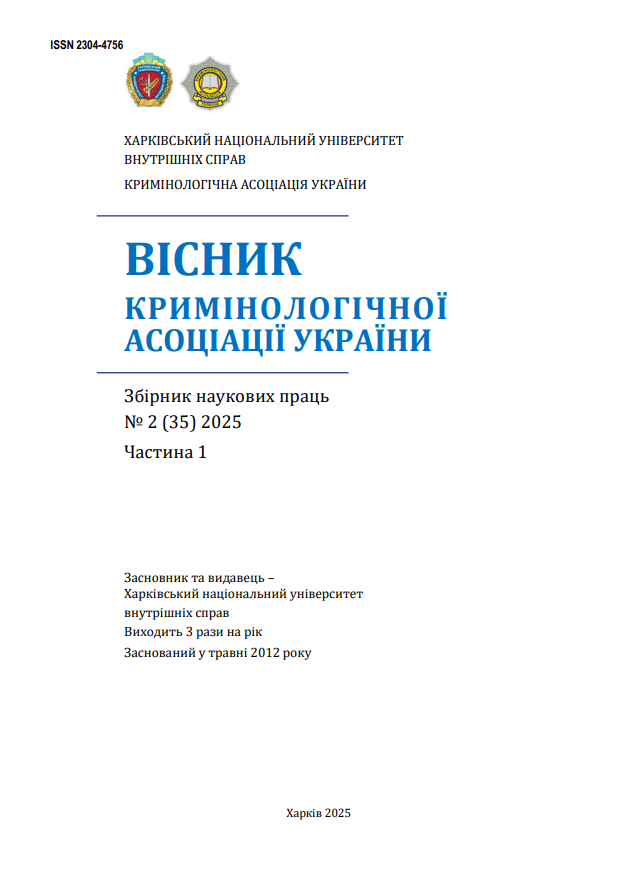THE PROBLEM OF COMPLEXITY IN CRIMINOLOGY: ANALYSIS OF THE PAST, ASSESSMENT OF THE PRESENT AND A LOOK INTO THE FUTURE
DOI:
https://doi.org/10.32631/vca.2025.2.1Keywords:
complexity, comprehensive approach, systemicity, systems approach, complexity science, methodology, criminological system, criminology, crime, riminal unlawfulnessAbstract
This article, based on the results of theoretical and empirical research,
attempts to evaluate the breadth and depth of understanding the issue of
complexity and the comprehensive approach in the field of criminology.
Arguments are presented regarding the appropriateness of studying the state of
scientific development of the problem of complexity. The characteristics of an
intersystem, sectoral-subject-chronological approach to understanding the
announced issues are revealed. The author offers a general understanding of
complexity and the comprehensive approach. Key scholars and their scientific
works, which directly or mostly indirectly relate to the problem of complexity, are
listed. The article outlines the four main stages in the formation and development
of philosophical and criminological knowledge about complexity. Attention is
drawn to the significance of general scientific systems methodology for a deeper
understanding of the heuristic potential of the comprehensive approach in
general and complexity in particular.
The study of theoretical and methodological problems of complexity can be
excluded from the implementation of the systematic scientific approach, as well as
the consideration of this crisis problem through the prism of a special systemic
criminological object (formation). The development of scientific knowledge about
complexity and systematicity has gone through decades of conventional historical
eras: the initial (Antique), middle (modern era), main (from the middle of the
20th century to the present) and modern stages.
Currently, the increase in knowledge about the problem of complexity in
criminology can be productive provided that the phenomenon of crime is
recognized as a complex social system, which, according to the dialectical law of
unity and struggle of opposites, is opposed by another, criminological, system. It
consists of several interconnected complexes that closely interact with each other
and are aimed at achieving a single systemic goal - the protection of human and
civil rights and freedoms, limiting the spread of criminal offenses and reducing
their negative social consequences.
The prospects for further research into the specified scientific matter have
been outlined. Promising directions for increasing scientific knowledge in this
area are the justification of the application of complexity at all levels of the
criminological system of Ukraine in order to achieve the effectiveness of criminological doctrine, criminological legislation, criminological policy,
criminology as an academic discipline, criminological worldview, and
criminological activity.
Downloads
Downloads
Published
Issue
Section
License
Copyright (c) 2025 М.Г. КОЛОДЯЖНИЙ

This work is licensed under a Creative Commons Attribution 4.0 International License.

